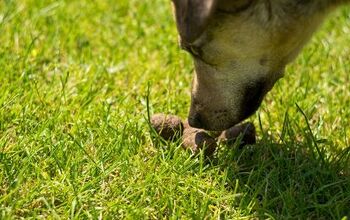Why Does My Dog Have Bad Breath?

“Doggy breath” might seem like just another quirky part of living with a pup - but if your dog’s breath has taken a turn for the seriously stinky, it could be telling you more than you think. While the occasional whiff of dog breath is normal, persistent or especially foul odor often points to an underlying issue that deserves attention.
So, let’s dig into the most common reasons your dog might have bad breath - and what you can do about it.
1. It Often Starts with Dental Hygiene
Just like with humans, the number one culprit behind bad breath in dogs is poor oral hygiene. When plaque and tartar build up on the teeth, they create the perfect environment for bacteria to thrive. Over time, this can lead to gingivitis and periodontal disease, which not only cause bad breath but also pain, inflammation, and potential tooth loss.
In more severe cases, those harmful bacteria can even enter the bloodstream and affect your dog’s heart, kidneys, or liver.
What helps:
- Brush your dog’s teeth regularly using pet-safe toothpaste.
- Offer dental chews designed to reduce tartar.
- Schedule professional cleanings with your vet when needed.
It might take some getting used to, but building an at-home dental care routine is one of the best things you can do for your dog’s overall health (and breath!).
2. It Could Be the Diet (Or What They’re Sneaking)
If your dog has a habit of getting into trash, compost, or other not-so-delicious delights, you might notice it on their breath. Dogs who eat smelly or spoiled foods - or those who engage in coprophagia (yes, eating poop) - will naturally have breath to match.
Even if your dog sticks to their food bowl, some diets or treats can leave lingering smells.
What helps:
- Stick to a high-quality, balanced diet.
- Keep garbage and pet waste out of reach.
- Consider dental treats or water additives that help freshen breath.
3. It Might Be a Sign of an Underlying Health Issue
Sometimes, bad breath is more than a dental or dietary issue - it can point to something going on inside your dog’s body. For example:
- Kidney disease can give breath a metallic or ammonia-like smell.
- Diabetes may cause a sweet or fruity scent due to elevated ketones.
- Liver disease, digestive issues, or respiratory infections can all contribute to unusually foul breath.
If your dog’s breath changes suddenly or becomes extremely unpleasant despite good dental care, it’s time to check in with your vet.
4. Injuries, Infections, or Foreign Objects Can Be to Blame
Dogs love to chew, but sometimes that curiosity leads to problems. Sharp sticks, bones, or rough toys can cause cuts or abscesses in the mouth. Foreign objects (like splinters or food scraps stuck between teeth) can become infected, leading to swelling and a strong odor.
Even oral tumors - whether benign or serious - can produce an especially bad smell as they grow or become ulcerated.
What helps:
- Check your dog’s mouth regularly for swelling, bleeding, or stuck objects.
- Don’t ignore unusual drooling, difficulty chewing, or reluctance to eat.
- If something seems off, make a vet appointment promptly.
In The End
While “dog breath” is common, really bad breath isn’t something you should ignore. Whether it’s caused by poor dental hygiene, a curious diet, or a deeper health issue, your dog’s breath can offer valuable clues about their well-being.
With the right care - including regular vet visits, dental maintenance, and a watchful eye - you can help keep your dog healthy, comfortable, and a lot more pleasant to cuddle up with.

A proud mama to seven dogs and ten cats, Angela spends her days writing for her fellow pet parents and pampering her furballs, all of whom are rescues. When she's not gushing over her adorable cats or playing with her dogs, she can be found curled up with a good fantasy book.
More by Angela Vuckovic

























